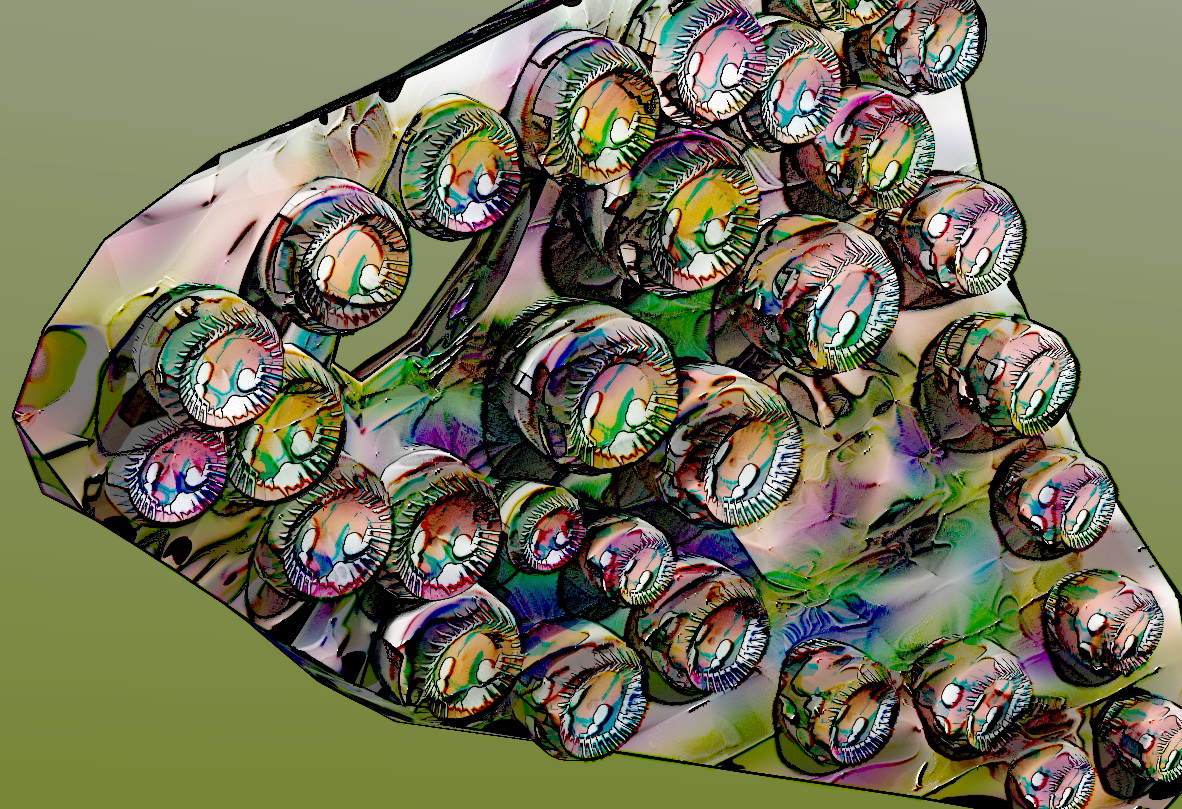
Detail from Cornaptychus No. 3, D.W. '23
Cornaptychus
Biotechnology from a Possible Future
Like Stapledon1, I seem to think about high technology in terms of prehistoric shapes. This is how I found out about the cornaptychus, the mouth part of a specific fossilized mollusk.
I knew it would make a dynamic sculpture. But after placing it on a pedestal of tentacle-forms, I began thinking about it like an archaeologist.
Is it a piece of technology or an organism? Can it be both? I have created a pearloid-like material to render several of such biomorphic artifacts, roughly dating them to a far future.
I like to think that they hint at a planet grown whole, blurring the boundary between individuals and species in their ambiguity.
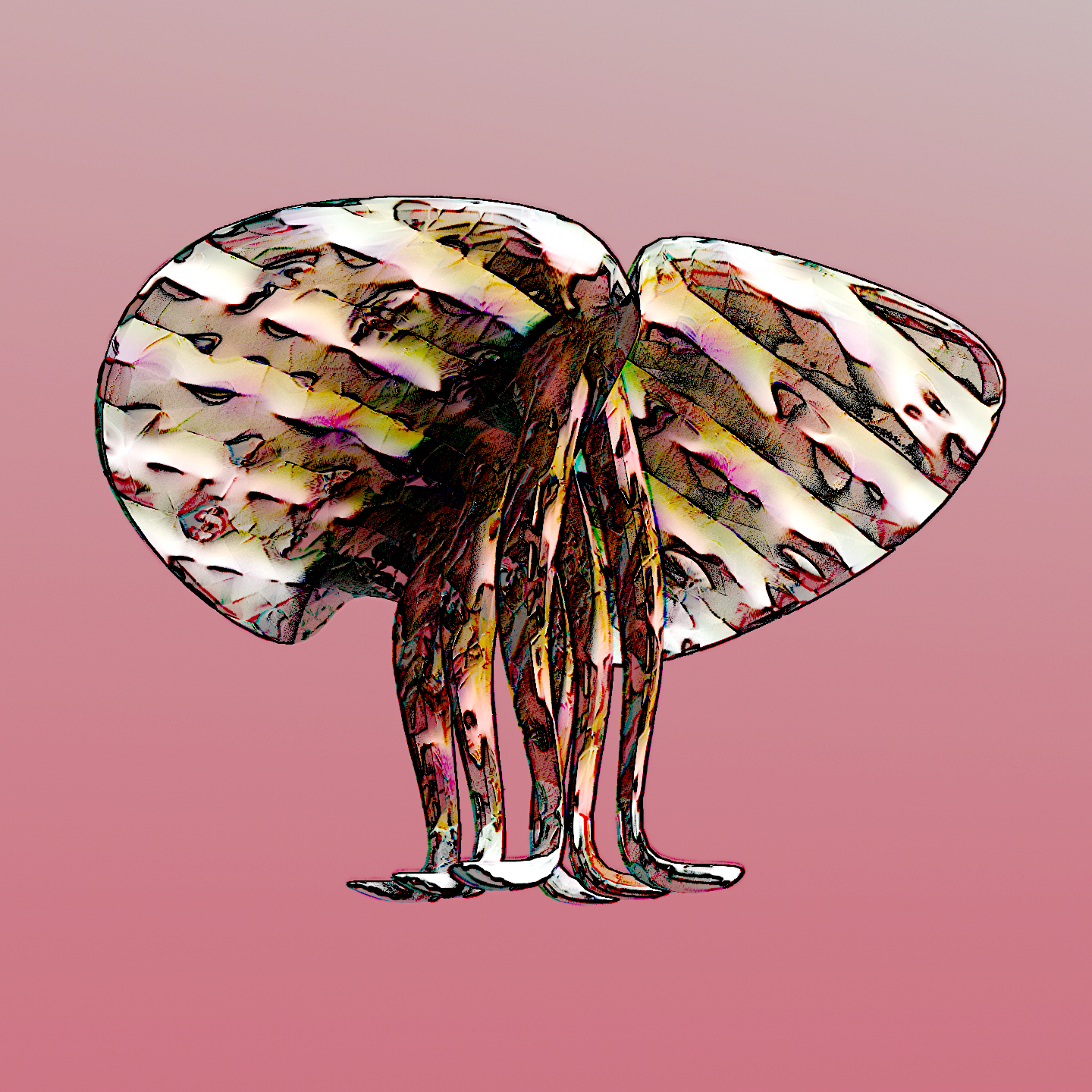
Digital Rendering | D.W. '23
Cornaptychus No. 1
30 × 30 cm (≈ 11,8 × 11,8 in)
Zoom In
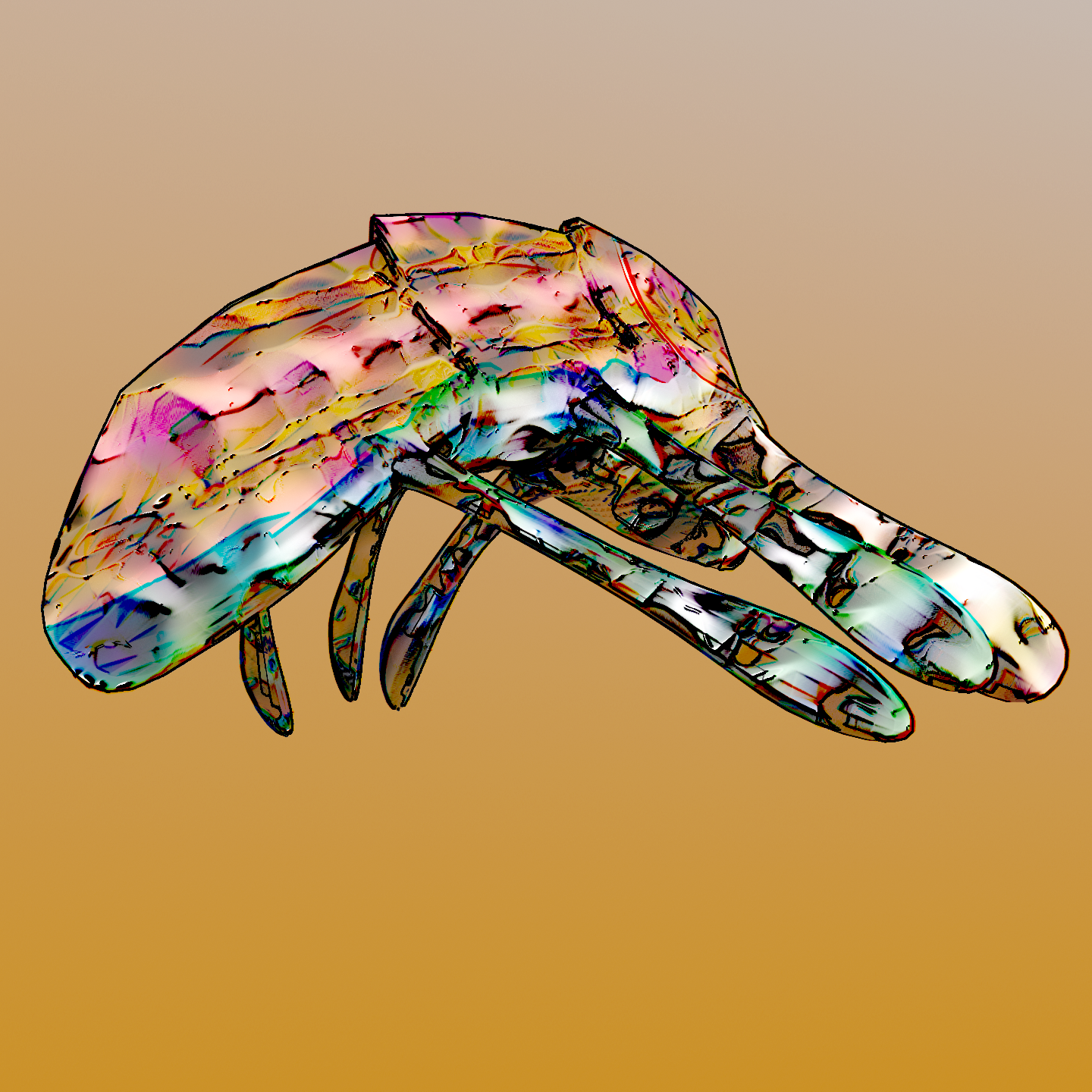
Digital Rendering | D.W. '23
Cornaptychus No. 2
30 × 30 cm (≈ 11,8 × 11,8 in)
Zoom In
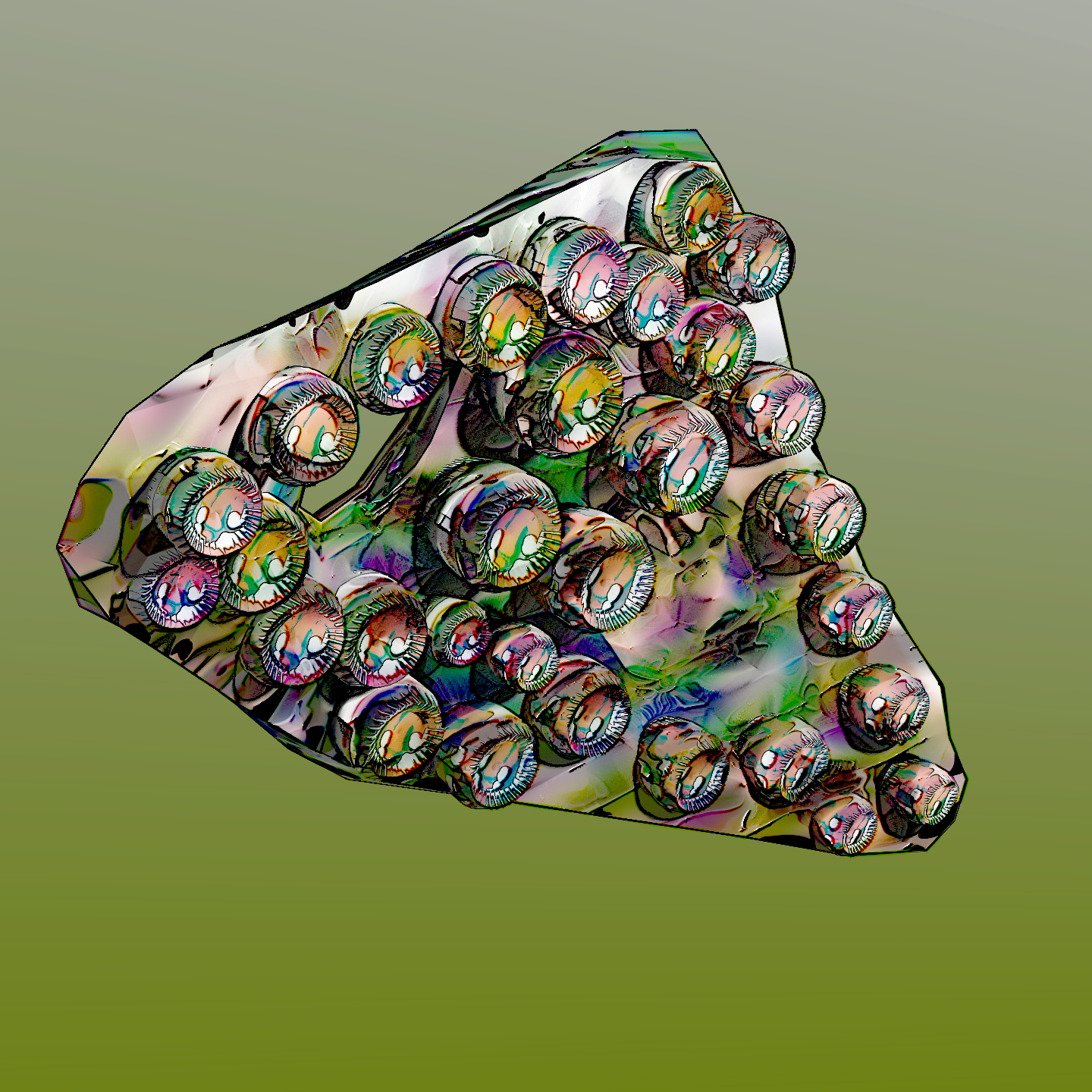
Digital Rendering | D.W. '23
Cornaptychus No. 3
30 × 30 cm (≈ 11,8 × 11,8 in)
Zoom In
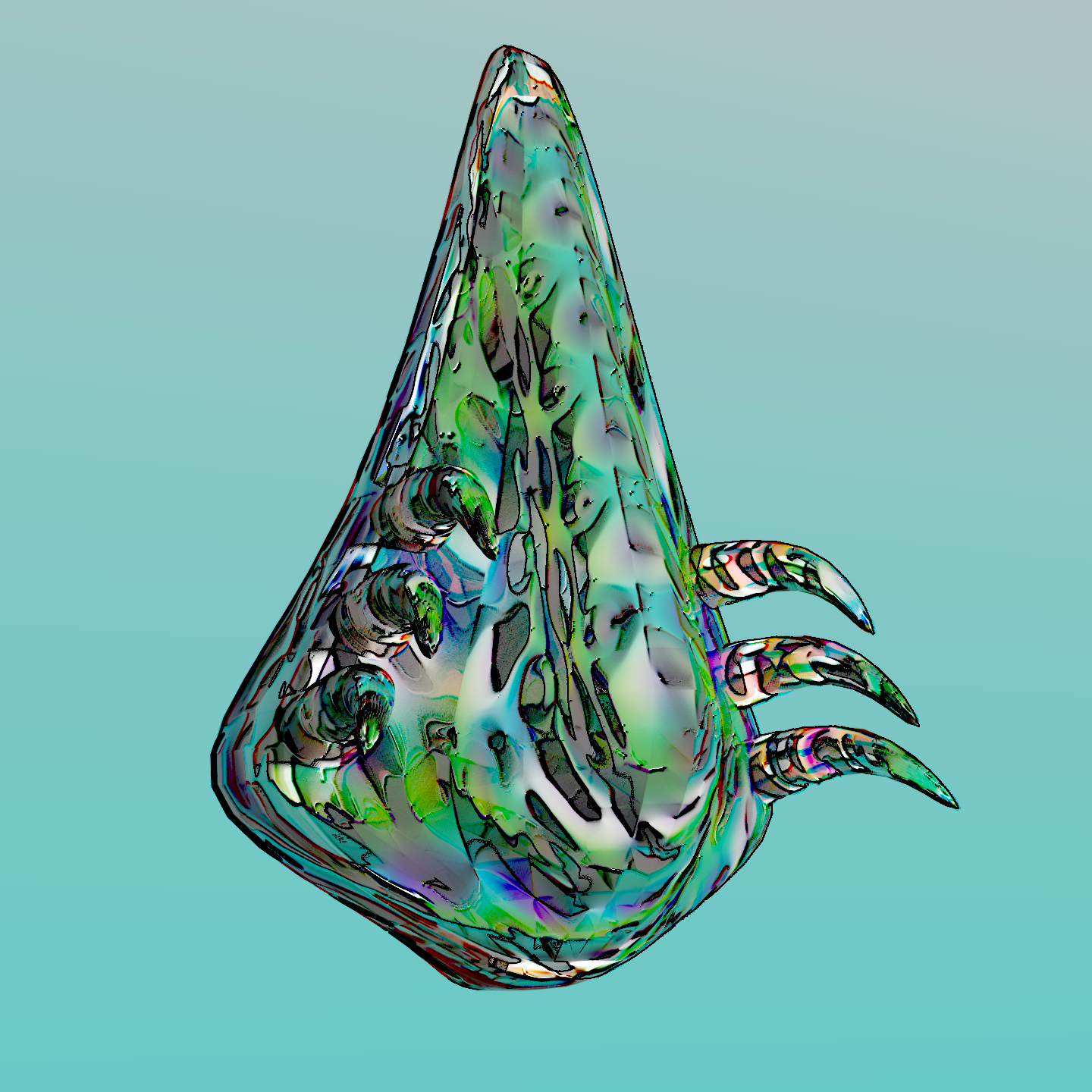
Digital Rendering | D.W. '23
Cornaptychus No. 4
30 × 30 cm (≈ 11,8 × 11,8 in)
Zoom In
Footnotes
- 1↑ I am referring to the future history that science fiction author and philosopher Olaf Stapledon has developed in works like First and Last Men.
